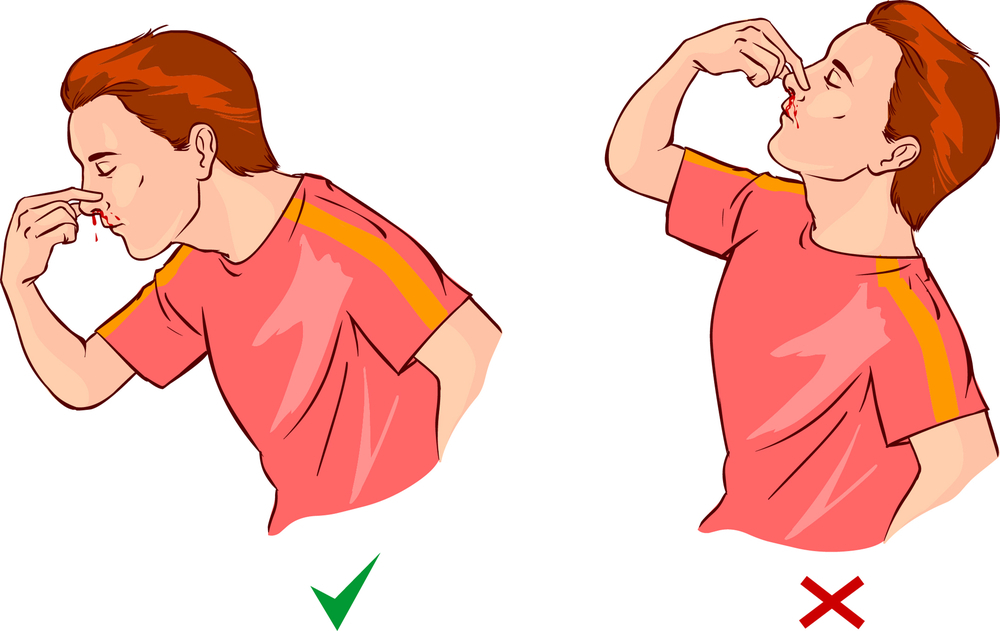What to Do When Your Nose Bleeds
March 3 2018Most nosebleeds are mild and do not last long. Nosebleeds are common in children and older people with medical conditions, but can also occur after an injury or cold.

If you have a nosebleed:
- lean forward and firmly pinch the nose below the bridge (the bony part), for 10 minutes non-stop
- then let go and see if the bleeding has stopped
- don’t tilt your head backwards as the blood may go down your throat into your stomach – this can make you feel sick
- breathe through your mouth and spit out any blood that enters your mouth
- you can put an ice pack on your forehead and the back of your neck and suck on ice cubes.
When the bleeding has stopped:
- try not to pick or blow your nose, even if it feels uncomfortable, as this may cause another nosebleed
- avoid any strenuous activity, such as playing sports, for 24 hours after the bleeding has stopped
- don’t pack the nostrils with tissues or cotton wool.
If bleeding starts again, repeat the advice above.
If a nosebleed is very heavy and does not stop after 15 minutes of non-stop pressure, you need to go to your nearest emergency department. It may be necessary for a doctor or nurse to pack your nose with dressings to stop the bleeding.
If you have a facial injury that means you cannot put pressure on your nose to stop the bleeding, visit your nearest emergency department for further treatment.
Call your physician or ask for advice by a registered nurse if:
- your symptoms get worse
- you develop new symptoms
- you become increasingly concerned.
Sourced from Health Direct.
